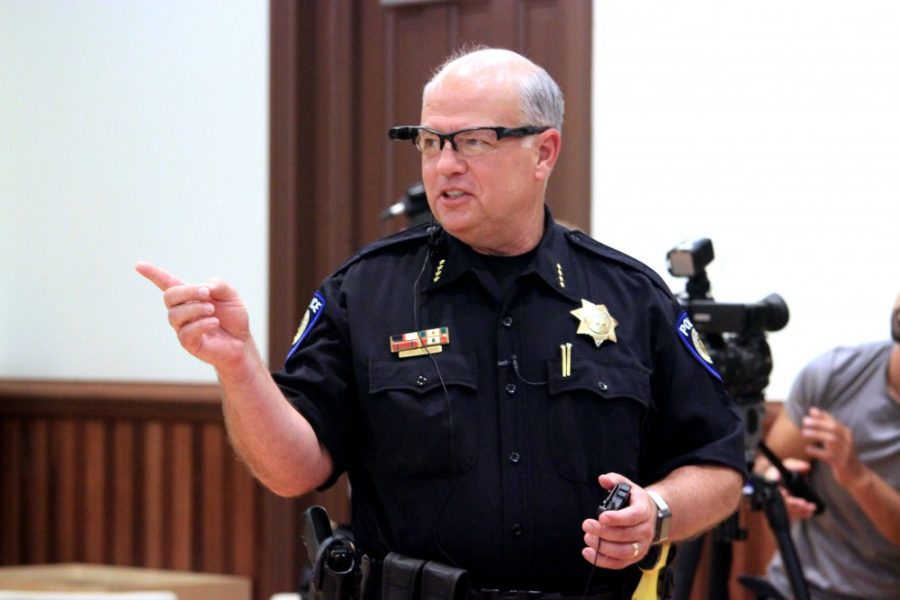Arizona Sen. John Kavanagh has introduced a bill to the Arizona Legislature that would make filming law enforcement activities within 20 feet of police officers without asking for permission illegal.
Sen. Kavanagh, a veteran police officer, served a total of 20 years for the Port Authority Police Department in New York and the New Jersey Police Department. The senator is also a military veteran.
According to the Arizona Capital Times, Kavanagh believes his bill would protect police officers from the distraction of being video-recorded in close proximity.
Kavanagh’s proposed bill raises many issues, especially in light of the critical role that videos taken by citizens have played in recent cases of police interactions.
A video taken of Eric Garner’s arrest on July 17, 2014, shows a police officer continuing to hold Garner in a chokehold despite Garners repeated plea “I can’t breathe.” The chokehold tactic is no longer used by the New York Police Department. The medical examiner later determined the chokehold as Garner’s cause of death and ruled his death a homicide.
The video of Garner was just one of the many videos that caused public outrage over police behavior. Police have recently begun wearing body cameras as a measure of accountability and they’re not complaining.
University of Arizona Police Department Sgt. Filbert Barrera says the body cameras, which UAPD officers began wearing in August, are a “great tool.”
“It gives me the ability to randomly select videos of my officers at traffic stops,” Barrera said. “I just want to make sure they’re doing the right thing.”
Barrera said he believes law enforcement around the nation has embraced the growth of video usage. Barrera also said that the new technology UAPD applies well to police safety.
“I think the body cameras — the cameras that the officers have on their body, cars and vehicles — they’re all a good thing,” Barrera said. “People pointing the camera at us, as long as it doesn’t interfere with what we’re doing, they’re not a danger.”
Police in the modern era have, for the most part, become accustomed to being constantly recorded.
“I can’t comment on what’s important for the justice system,” Barrera said. “What I can tell you is that people recording us is what people do now a days.”
Police began using cameras in their cars in 2000 and UAPD put cameras on their motorcycles in 2005. The constant recording doesn’t just keep the officers honest; it also keep citizens in check.
Barrera recalls an incident in which an on-person camera had debunked a citizen complaint of an officer.
“The person who got the ticket, they had complained,” Barrera said. “I looked at the video and I said, ‘Would you like to come see the video because it’s all there and … I don’t see any of that,’ and she didn’t call me back.”
Police body cameras are not a full solution, however. Officers are allowed to wear the cameras in a variety of places including on their shoulders, hats or glasses. According to Barrera, each way has its limitations and police action is not always captured.
The value of the private citizen’s recording is still valuable and it remains an important First Amendment right. Michael McKisson, a multimedia journalist and assistant professor of practice at the UA School of Journalism, called the bill “ridiculous.”
“I think it’s been shown over and over and over again and it’s been held up in courts over and over and over again, that if you’re in a public space, people have the right to record or take photographs,” McKisson said.
The bill will next be discussed at an Arizona Senate rules committee meeting on Jan. 19.
Follow Michelle Jaquette on Twitter.









